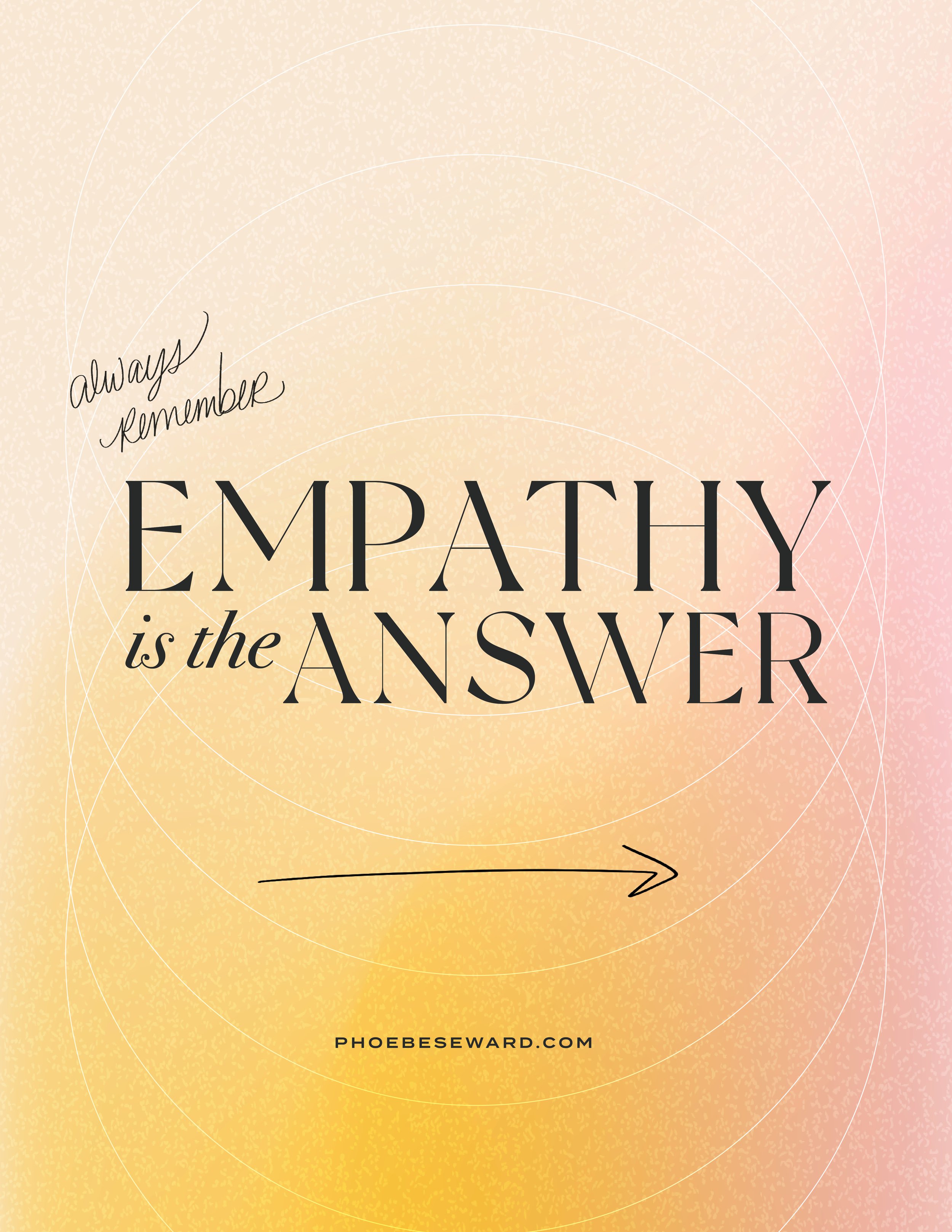Empathy is the Answer: Unlocking the Superpower Within
I have a history of being excessively self-critical, which is a recurring negative habit that I consciously work on overcoming. One thing that has helped tremendously is practicing self-empathy. Along with gratitude, empathy has had a huge impact on me, altering my perspective of the world and my interactions with others in all aspects of life. We are all human, and I truly believe we are all striving to do our best.
In a world that often celebrates hustle, drive, and technical prowess, it's easy to overlook the power of empathy. However, in design, business, leadership, and life in general, having an empathy mindset is what matters most. This soft skill has the potential to transform not only our professional lives but also our personal relationships. By putting ourselves in someone else's shoes, we unlock a superpower that allows us to understand, connect, and create with purpose. So, let's explore why having an empathy mindset is the key to success in various aspects of our lives.
Empathy in Design
Design is not merely about aesthetics or functionality; it's about solving problems and creating experiences that resonate with people. When designers cultivate an empathy mindset, they gain the ability to understand the needs, desires, and frustrations of their target audience. By immersing themselves in the user's world, they can anticipate their pain points and design solutions that truly address them.
Empathy allows designers to move beyond assumptions and stereotypes, enabling them to create inclusive and user-centric products. By considering diverse perspectives and experiences, designers can develop interfaces, products, and services that cater to a wide range of users. In the end, empathy-driven design not only leads to better outcomes but also fosters loyalty and trust among users.
Empathy in Business
In the fast-paced and competitive landscape of business, it's crucial to connect with customers on a deeper level. Companies that prioritize empathy cultivate strong customer relationships, which ultimately translates into increased brand loyalty and customer satisfaction. By understanding their customers' pain points, desires, and aspirations, businesses can tailor their products or services to meet their specific needs.
Moreover, empathy extends beyond customer interactions. It plays a vital role in fostering effective teamwork and collaboration within organizations. When leaders and employees practice empathy, they create a supportive work environment where individuals feel valued and understood. This, in turn, boosts morale, engagement, and productivity, leading to better business outcomes.
Empathy in Leadership
True leadership is not just about giving orders and making decisions; it's about inspiring and guiding others towards a shared vision. Leaders who possess an empathy mindset are more attuned to the needs of their team members. They actively listen, provide support, and acknowledge the unique contributions of each individual.
By empathizing with their team, leaders can create a culture of trust, open communication, and psychological safety. This encourages collaboration, innovation, and creativity, enabling organizations to thrive. Empathy-driven leaders also excel at resolving conflicts, managing diverse teams, and adapting to change. Their ability to see the world through others' eyes allows them to make informed decisions that consider the well-being and growth of their team members.
Empathy in Life
While empathy is often associated with professional success, it is equally essential in our personal lives. It helps us build meaningful relationships, deepen connections, and foster a sense of community. By empathizing with our loved ones, friends, and even strangers, we nurture understanding and compassion.
Moreover, an empathy mindset can contribute to personal growth and self-awareness. It challenges us to confront our biases, broaden our perspectives, and question our assumptions. By embracing empathy in our daily interactions, we become more open-minded, adaptable, and resilient individuals.
Having an empathy mindset is not a weakness but a superpower that can propel us forward in design, business, leadership, and life in general. By putting ourselves in someone else's shoes, we gain a profound understanding of their needs, wants, and struggles. This enables us to create meaningful experiences, build strong relationships, and make a positive impact on the world around us.
So, let's strive to cultivate empathy in every aspect of our lives. Let's listen, understand, and connect with others on a deeper level. Together, we can create a more compassionate and inclusive world, where empathy becomes the driving force behind our success and fulfillment.










